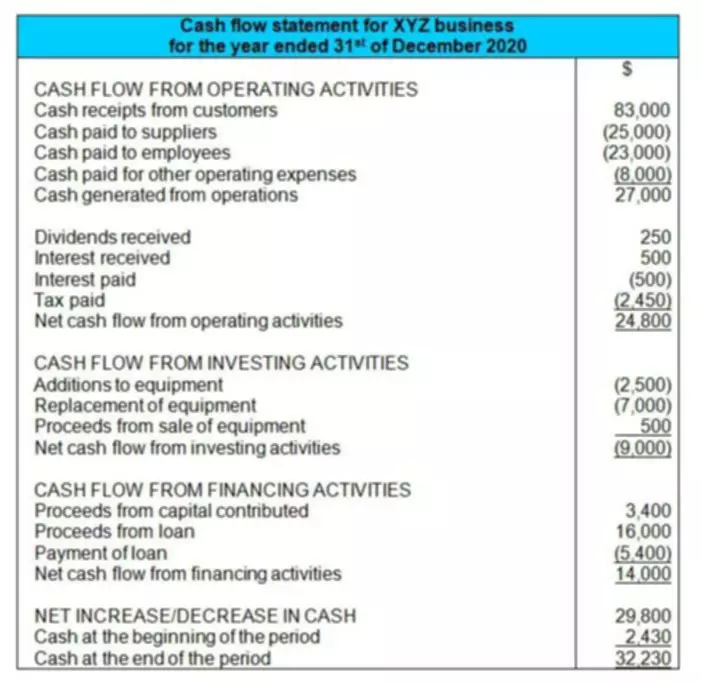Content

As the owner of BudgetEase, Kathy works with clients to develop a plan to efficiently process 1,000s of small transactions so owners can make informed decisions. She lives in Shaker Heights, OH with her husband Ralph and enjoys golf, curling and walking in Cleveland’s fabulous Metro Parks. Bench gives you a dedicated bookkeeper supported by a team of knowledgeable small business experts. We’re here to take the guesswork out of running your own business—for good.
While each IOLTA program follows similar guidelines, rules do vary by state. (For example, state Supreme Courts have made IOLTA mandatory in some states and voluntary in others.) That’s why it’s important to consult your State Bar Association and a professional accountant before finalizing your accounting setup for IOLTA. What these attorneys and accountants what is an iolta account don’t understand is that a transfer between IOLTA and operating is not a transfer. It’s two completely separate transactions, and it needs to be entered as such on your books. So, be careful about how you enter transfers between operating and IOLTA in your bookkeeping software, because recording a “transfer” is a classic trap for the unwary.
Frequently Asked Questions
Some IOLTA-friendly merchants will charge fees to your firm’s operating account while depositing funds to the IOLTA account. If your merchant isn’t IOLTA-friendly, however, these fees can become hard to track, causing you to charge the wrong client’s account. No matter which accounting solution you use, you should keep a separate ledger for each individual client account, even if it’s small or for a short period of time. Here’s what Doris’ individual ledger would look like after the transaction we mentioned above. Whatever it is called, we need to make sure with the bank that the fee cannot be charged to that account. A separate operating account or credit card has to pay all fees so that the customer’s money is never touched.
- IOLTA accountmeans a pooled interest- or dividend-bearing trust account benefiting the Alabama Law Foundation or the Alabama Civil Justice Foundation established in an eligible institution for the deposit of nominal or short-term funds of clients or third persons.
- The reason the accounts were non-interest-bearing is that prior to 1981, commercial banks were prohibited by federal law from paying interest on demand deposits (e.g. checking accounts).
- All attorneys in Vermont are required to place client funds in trust.
- IOLTA programs have been created by Court Rule, while several have been established through state legislatures.
- For help with trust-account reconciliations, fill out the WSBA’s Monthly Reconciliation and Review Reportform.
And one of the most important of those is returning client trust funds. Attorneys routinely receive and hold funds from clients or third parties for future use. The amount of money held and duration to be held determines whether the client’s money should be held in a client trust account or IOLTA trust account. Know When You Need an Individual Trust Account for Client Funds. IOLTA accounts are designed to hold relatively small amounts of money for relatively short periods of time. If you are holding a large amount of money for a client, or if you are keeping money in trust for a long time, those funds should be deposited in a separate trust account that earns interest for the account beneficiary.
Frequently Asked Questions during the COVID-19 Pandemic
Please do not enter any confidential information on our site until you upgrade your browser to its latest version. 1st Source values the safety and security of our clients’ accounts and information. Find more information about IOLTA and trust accounting requirements on the Rules and Resourcespage. Find more information about the IOLTA and trust accounting requirements on the IOLTA Resources page, and view the full text of Rule 1.15. To prevent misappropriating funds from other clients, remember to only charge your clients for fees directly relating to their trust account. If there is a dispute over your fees, and you have client money in the trust account, check with your state bar—many require you to hold that money in the trust account while the fee dispute is handled. The second rule above means that lawyers also need to keep a watchful eye on how much each client has in trust, as they cannot use one client’s money to cover expenses for another client.

In states with mandatory IOLTA participants, the lawyer must place client funds into a trust account and cannot withdraw the money until they have earned the fee. For a clearer definition, it is a method of raising money to fund civil legal services to low-income people through the use of the interest earned on the attorney trust account. Essentially, it’s necessary to keep separate track of client funds given in trust, away from law firm operating funds.
Best Legal Accounting Software for Lawyers
With the premium features in all the plans offering top-notch client services when it comes to data migration and security, CaseFox makes your everyday practice easy. Consider banking with a Leadership Institution that offers premium rates on all IOLTA accounts under deposit. All 50 states and the District of Columbia have approved IOLTA programs. In Australia and Canada, where the IOLTA concept originated, the programs have been operating since the 1960s. IOLTA accountmeans the IOLTA trust account maintained by Thomas W. Coffey, Esq., as legal counsel to Seller.
When a lawyer has possession of relatively small sums , the lawyer is allowed to pool these client funds into a single IOLTA account, rather than opening a separate trust account for each client. Interest earned on the account is transferred to a fund supporting legal aid for the poor and public service programs. Rule 1.15 requires lawyers to deposit all nominal or short-term client funds in an IOLTA account. Funds that are capable of generating net interest for an individual client should be deposited into a separate, interest-bearing trust account with interest paid to the client.
What is IOLTA?
An IOLTA account is a pooled, interest- or dividend-bearing business checking account for the deposit of client funds which pays all interest earned to the Lawyers Trust Fund. Under Rule of Professional Conduct 1.15, Illinois lawyers are required to deposit short-term or nominal funds of clients and third persons into IOLTA accounts. For example, law firms that handle https://quickbooks-payroll.org/ real estate matters may require several pooled trust accounts at different financial institutions. On the other hand, a criminal practice may require only one pooled trust account. The Massachusetts Bar Foundation also is governed by a fifteen-member board of trustees. Both bar foundations have along tradition of supporting a variety of public service activities.
In Vermont, IOLTA generates in the range of $900,000 each year. If you continue to get this message, please do not enter any confidential information on our site. If you don’t have time to manage your own bookkeeping and are thinking of hiring outside help, make sure to hire a bookkeeper who has experience with law firms. Some firms will also intentionally use their IOLTA accounts to hide assets, or will leave funds in their IOLTA even after they’ve been earned, using it as a “savings” account. A prescribed Trust Accounting Certificate of Compliance form will be sent to each attorney annually by the NH Bar Association with the attorney’s annual dues and court fees assessment.
Five common mistakes that lawyers make with IOLTA
An expert bookkeeper ensures your IOLTA is always recorded properly on the books. They can also flag any potential misuse of trust funds so that they can be fixed before you face any penalties. Your books will be ready for tax season and you can work confidently knowing your IOLTA is handled right. All attorneys are required to participate in IOLTA unless exempt from this requirement pursuant to Rule 50. Please use the following links to access more information on the Mandatory IOLTA program. And yet, this reconciliation is expressly required by the RPCs.
